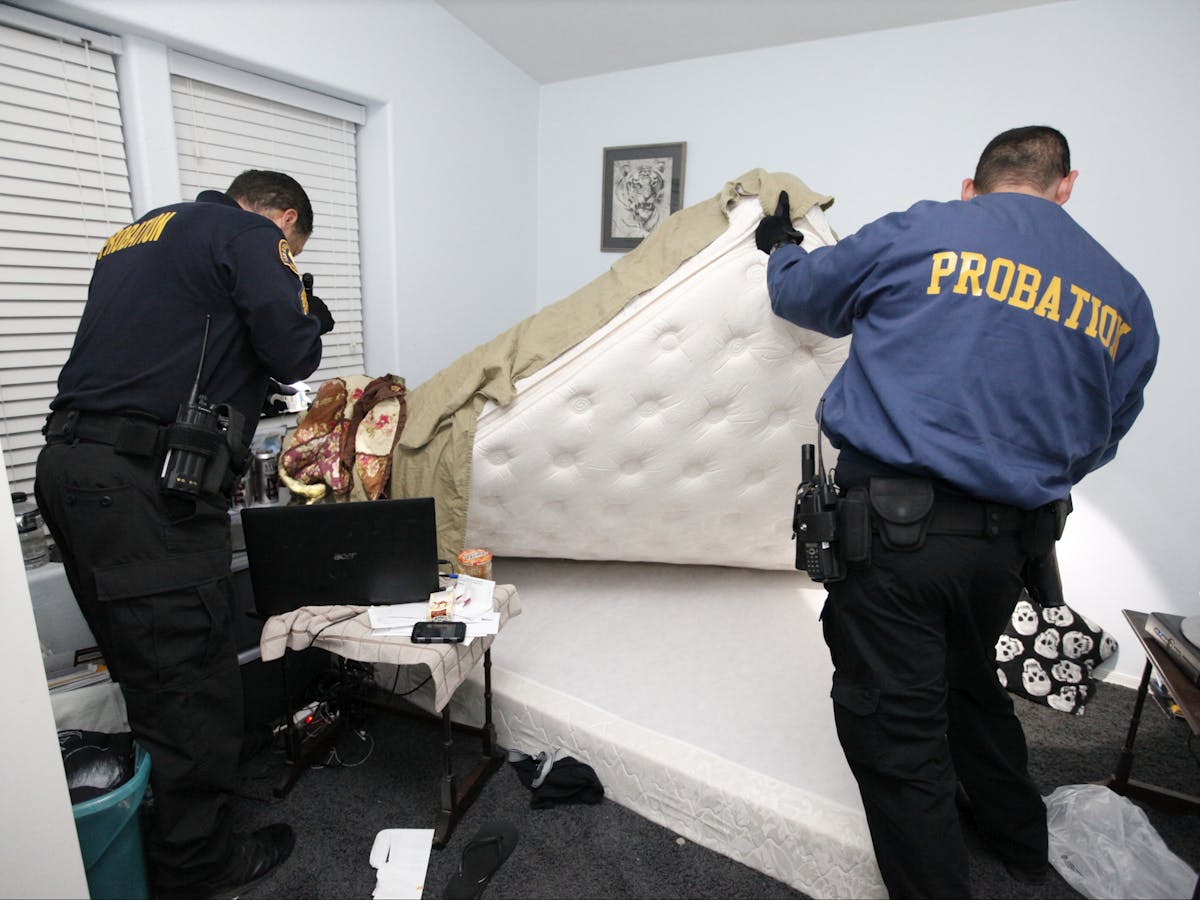
In State v. Harrington, the WA Supreme Court held that the “Progressive Intrusion” of the officer during the investigations was an unlawful search.
Issue was whether the police unlawfully searched/seized the defendant prior to arrest, in violation of article I, section 7 of the Washington Constitution, requiring suppression of drugs found on his person.
In short (yes, I’m getting to the good part), the WA Supremes decided the search WAS unlawful, and amounted to a “progressive intrusion.” Evidence suppressed, case thrown out of court.
The facts: On August 13, 2005, 11:00PM, Officer Reiber of the Richland Police was driving his police car on duty. He noticed soon-to-be defendant, Dustin Harrington, walking down the sidewalk. Officer Reiber made a U-turn, drove past Harrington, and pulled into a driveway. He did not activate his lights or siren. Officer exited his car and made contact with Harrington (this is called a “social contact”).
Officer Reiber asked questions. Harrington answered them awkwardly and non-sensically. Officer became nervous because Harrington kept putting his hands in his pockets. The conversation lasted about five minutes.
State patrol Trooper William Bryan drove by the scene. He initiated a U-turn, got out of his car, and approached the two men. Similar to Officer Reiber, Trooper Bryan did not activate his emergency lights. Upon contact, Trooper Bryan did not speak to either gentleman. He stood about eight feet away.
Officer Reiber asked Mr. Harrington if he could pat down Harrington “for officer safety reasons.” Mr. Harrington said “No.” Officer patted Harrington down anyway, against Harrington’s consent. During the pat-down, Officer Reiber found a glass pipe used for smoking methamphetamine. Reiber arrested Harrington. During the search, officers discovered a pipe and baggie containing methamphetamine on Harrington’s person. Harrigton was charged with Unlawful Possession of Methamphetamine.
The WA Supremes articulated why the search/arrest was illegal, and consequently, why the evidence should be suppressed. They discussed what “social contact” between an officer and citizen means:
“The phrase’s plain meaning seems somewhat misplaced. ‘Social contact’ suggests idle conversation about, presumably, the weather or last night’s ball game — trivial niceties that have no likelihood of triggering an officer’s suspicion of criminality. The term ‘social contact’ does not suggest an investigative component.”
The Court further reasoned that subsequent events quickly dispelled the social contact and escalated the encounter to an unlawful seizure. First, Trooper Bryan’s arrival at the scene escalated the situation away from a mere “social contact” because a reasonable person would think twice about the turn of events. As a result, Trooper Bryan’s presence contributed to the eventual seizure of Harrington.
Second, Officer Reiber’s request for Mr. Harrington to remove hands from pockets added to the officer’s unlawfully progressive intrusion. Third, Mr. Harrington did not consent to the search. Officers MUST have a well-founded suspicion to search when they lack a defendant’s consent.
Here, these circumstances lacked the foundational basis for a search. Finally, and before Officer Reiber’s request to search, he did not ask for Harrington’s name or address, did not conduct a warrant check, and did not ask if Harrington carried drugs.
The court concluded Harrington was unconstitutionally seized because, like him, an objectively reasonable person would not have felt free to leave when officers asked to frisk. Consequently, the seizure violated article I, section 7 of the Washington Constitution.
My Opinion? Excellent. Beautiful. On point. The WA Supremes got it right. The cumulative effect of these violations — all three of them — amounted to an unlawful search. I’m extremely happy the WA Supremes addressed the fine line between a lawful “social contact” and unlawful “progressive intrusion.” I’ve had numerous clients face criminal charges as a result of an officer’s apparently innocent “social contact,” which was, in reality, a progressive intrusion into their privacy.
Please contact my office if you, a friend or family member are charged with a crime. Hiring an effective and competent defense attorney is the first and best step toward justice.















